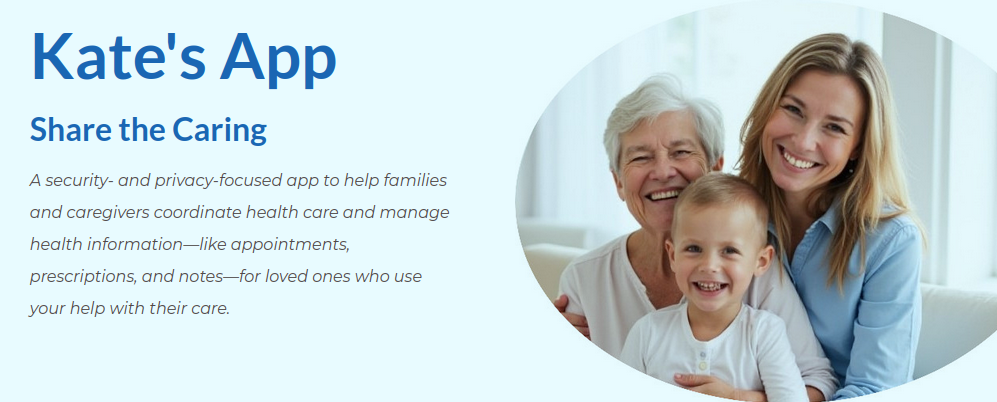
Why Kate's App
Sometimes medical care can be overwhelming and needs to be shared. Chronic pain. Fatigue. Discouragement. When it becomes too much, you can share the caring and help the people who want to help you.
-
Coordination of Care: Sharing medical information ensures that all caregivers and family members involved in a person's care are on the same page. This reduces the risk of conflicting treatments, missed appointments, or misunderstandings about the individual's health needs.
-
Emergency Situations: In emergencies, caregivers need quick access to information about medications, allergies, and existing conditions to provide appropriate care. This information can be life-saving if medical professionals need to make rapid decisions.
-
Support Network: Family members and caregivers can provide emotional and practical support more effectively when they understand the medical context. They can offer assistance with medications, transportation to appointments, and help with daily activities based on the person's health status.
-
Continuity of Care: If a person has multiple healthcare providers or specialists, sharing information helps ensure continuity of care. It prevents important details from being overlooked when transitioning between different healthcare settings or providers.
-
Advocacy:Family members and caregivers can advocate for the person's needs within the healthcare system more effectively when they have comprehensive medical information. They can ask informed questions, seek second opinions, or clarify treatment plans.
-
Legal and Financial Matters: In situations where medical decisions or arrangements need to be made on behalf of the person (e.g., legal matters, insurance claims), having access to medical information can facilitate these processes and ensure decisions align with the person's health needs.
-
Peace of Mind: For both the person and their loved ones, sharing medical information can provide peace of mind. Knowing that there is a support network informed about their health status can alleviate anxiety and foster a sense of security.
Sharing basic medical information with family and caregivers is about ensuring safety, improving care coordination, and enhancing the overall quality of life for the individual by involving a supportive network in their healthcare journey.